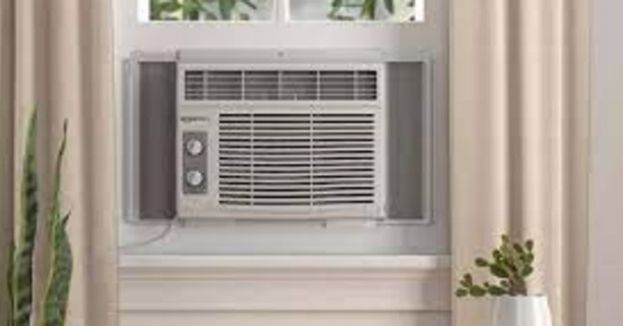Here are some of the pros and cons of air conditioning:
Dehydration. According to WebMD, air conditioners withdraw moisture from a room to reduce the humidity and cool the area. This can further pull water from your skin, drying YOU out. Your eyes may likewise suffer, becoming irritated and itchy.
Sick building syndrome. If you work in an air-conditioned building with poor ventilation, you may suffer symptoms of headaches, nausea, dry cough, dizziness, trouble concentrating, fatigue and sensitivity to odors. Forced air can likewise expand your risk for COVID-19 infection. Regular filter changes and opening windows can reduce that risk, states the Centers for Disease Control and Prevention. “A large body of research has found that occupants of offices with air conditioning tend to report more sick building syndrome (SBS) symptoms than occupants of naturally ventilated offices,” announced William Fisk, leader of Lawrence Berkeley National Laboratory’s Indoor Environmental Group.”
WATCH: NICOLE WALLACE AND THE END OF DEMOCRACY![]()
Lowers the risk of hospitalization and death due to cardiovascular disease. A Yale study discovered that using air conditioning lowers the risk for hospitalization and deaths linked to cardiovascular issues.
EIGHT U.S. NEWSPAPER PUBLISHERS TAKE ON AI GIANTS IN BRAZEN LAWSUIT![]()
Reduces the risk for heatstroke and heat-related death throughout heat waves. Fisk points out that we are undergoing higher and more dangerous temperatures with climate change. Air conditioning helps prevent unnecessary heat-related deaths. A properly maintained A/C unit further filters out particles from the circulated air. “With A/C and closed windows, indoor concentrations of outdoor air pollutants such as particles, ozone and allergens are decreased,” he stated.
YIKES! IS MARJORIE TAYLOR GREENE LOSING HER 'GRIP' IN POWER STRUGGLE?![]()
Boosts metabolism. Studies show that more time spent in cold weather could help you lose weight by burning more “brown fat.” Air conditioning in hot weather can help keep you in that cool, fat-burning state.
Helps improve cognitive skills. A 2018 Harvard study revealed that students who lived in dorms without A/C throughout hot weather months did worse on cognitive tests than those who had cool central air, says WebMD.
WATCH: FETTERMAN CONFRONTED BY A PRO-HAMAS ACTIVIST![]()
Irritates airways. Studies have found that people who work in air-conditioned buildings report more upper respiratory symptoms such as irritated nasal passages and trouble breathing than those who work in buildings with natural ventilation.
TESLA IN TURMOIL: MUSK OUSTS TOP EXECS AND PREPARES FOR MASSIVE LAYOFFS, WHAT'S HAPPENING?![]()
Helps you sleep. Experts explained that sleeping in a room between 60- and 67 degrees Fahrenheit is the ideal temperature for best rest. A cool room allows your body cool down, which is part of a natural sleep cycle.
Yet, 84% of houses in the United States still have some type of air conditioning. It is estimated that the US uses more air conditioning than all other countries combined.
DESPERATE TIMES: INSIDER REVEALS KING CHARLES HAS 'LOST ALL TRUST' IN PRINCE HARRY![]()
In American households, air conditioners are more common than dishwashers, garages, and dining rooms. On average, just 42% of homeowners have their air conditioners maintained by a professional. Regular HVAC maintenance extends the life of air conditioners by 40%.
PUMP AND DUMP: VIRAL "BOCA BASH" VIDEO SPARKS MAJOR INVESTIGATION![]()
Air conditioners release some 100 million tons of carbon dioxide yearly – or about 2 tons per home.
Air conditioners used chlorofluorocarbon refrigerants (CFCs) until the end of the 20th century. These greenhouse gases are discovered to be damaging our earth’s ozone layer. By the end of the 1980s, units used halogenated CFCs as a safer alternative, yet new research shows that these pollutants are also toxic for the environment. However, they use half as much energy as those before 1990. In 2030, we expect to see safer alternatives to CFCs.
PROFESSIONAL "PROTEST CONSULTANT" CAUGHT ON VIDEO STIRRING UP CHAOS AT COLUMBIA UNIVERSITY![]()
The most common types of air conditioners are central air conditioners and single-room air conditioners. For these systems to work, you must keep all windows and doors closed while the system is running. Whenever cool air escapes, the cooling system runs continuously until the thermostat is reached.







 Discover alternative ideas that will make you think
Discover alternative ideas that will make you think Engage in mind bending debate
Engage in mind bending debate Earn points, rise in rank, have fun
Earn points, rise in rank, have fun


